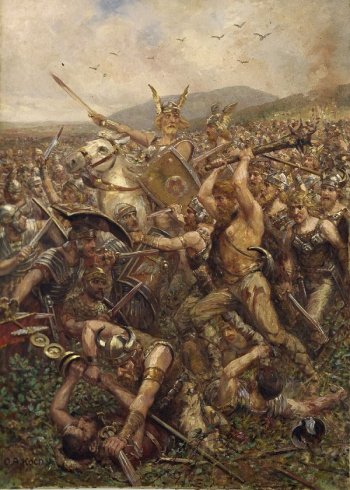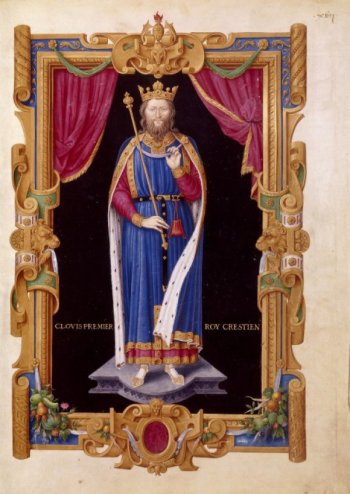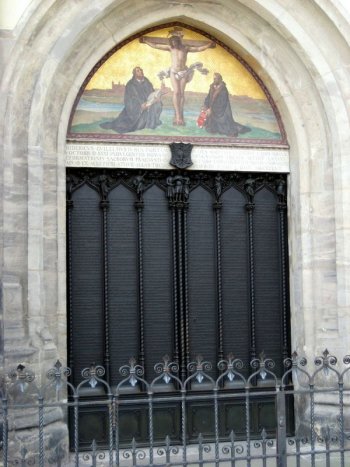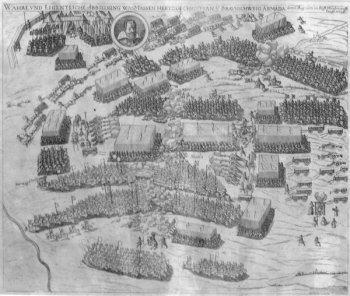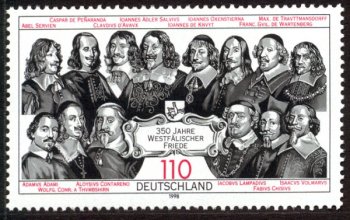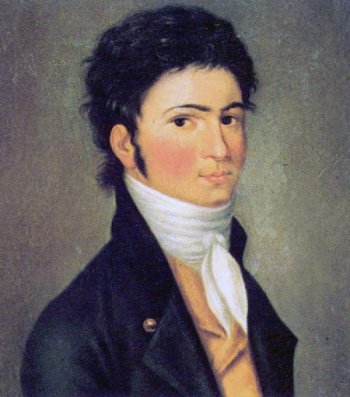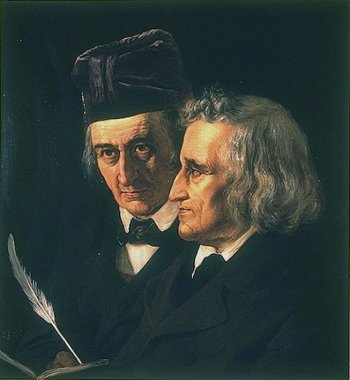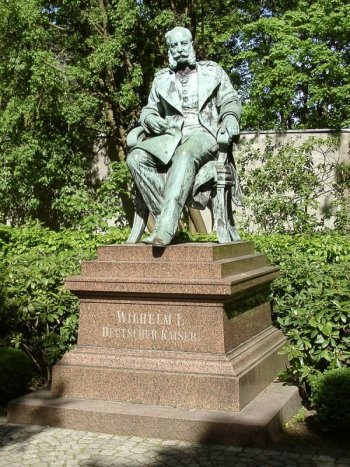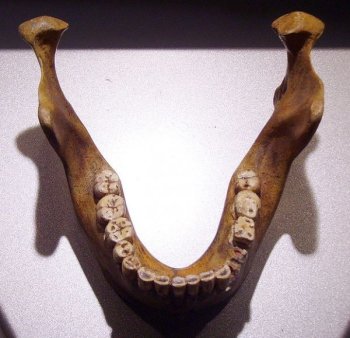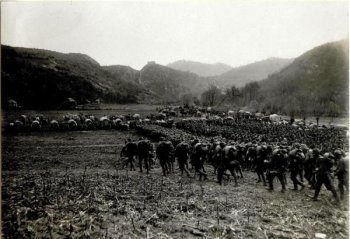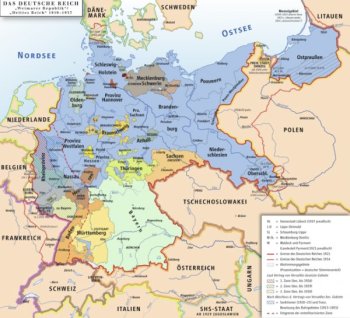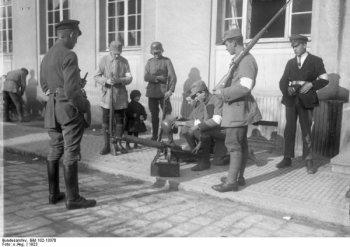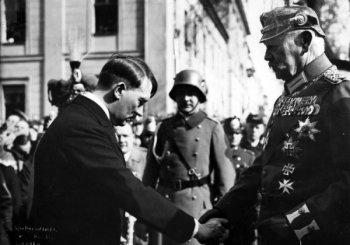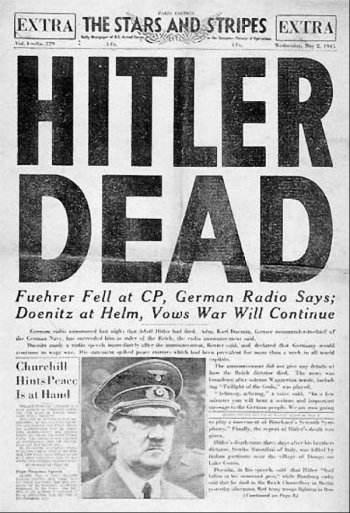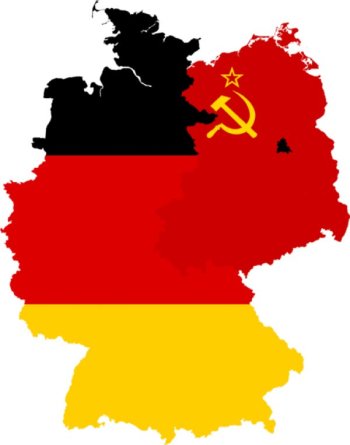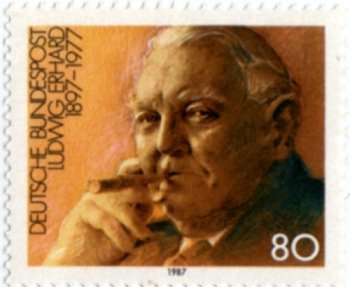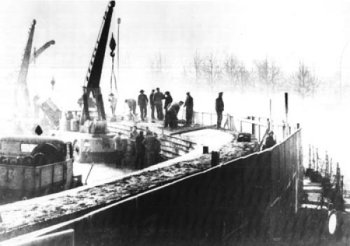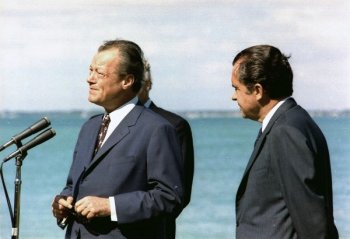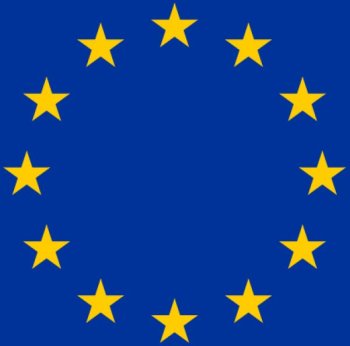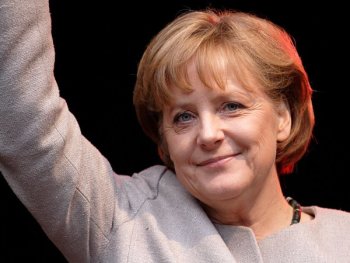History: Historical Timeline
Prehistory
| Date | Event |
|---|---|
| c. 607,000 BCE | Some of the first hominids roam the area during the Pleistocene age. |
| c. 600–300 BCE | East Germanic tribes begin moving southward from Scandinavia and settle between the Oder and Vistula rivers. |
Germanic Tribes and the Rise of the Franks
| Date | Event |
|---|---|
| 113 BCE–596 CE | Various Germanic tribes contend with Roman forces over several centuries in what later becomes known as the Germanic Wars. Skirmishes, major battles, and short-lived wars are fought not only in Germania but as far south as Rome. |
| 9 CE | In the Battle of Teutoburg Forest, an alliance of Germanic tribes led by Cherusci chieftain Arminius, a Roman citizen trained in Roman military tactics, halts an advance of the Roman army. The result of the battle greatly impacts both German and Roman history, as the latter's forces never again attempt to conquer German territory east of the Rhine river. This battle becomes known as "Rome's greatest defeat." |
| 437 | Roman military leader Flavius Aetius hires Hun mercenaries to attack the First Kingdom of Burgundy in response to its raids into Roman territory. Burgundian King Gunther is killed, along with the majority of the populace, an event believed to inspire some of the contents of the Nibelungenlied, an epic poem which in turn becomes the source material for composer Richard Wagner's musical drama, Der Ring des Nibelungen. |
| 509 | Clovis I becomes the first ruler to unite all of the various Frankish tribes under one leader. Clovis' earlier conversion to Christianity helps spread Catholicism throughout the region. |
| 800 | December 25. Charlemagne, King of the Franks, is crowned Holy Roman Emperor, the first ruler to be so named since the collapse of the Western Roman Empire in 476. In addition, this marks Charlemagne's founding of the Carolingian Empire. |
The Holy Roman Empire
| Date | Event |
|---|---|
| 962 | February 2. Otto I is crowned Holy Roman Emperor. Although Charlemagne's coronation 162 years earlier technically begins the title, the role is contested and even lapses during many of the intervening years. The Kingdom of Germany remains the largest territory within the Holy Roman Empire throughout its long history. |
| 1075–1122 | The Investiture Controversy, a power struggle between the Roman Catholic Church and secular leaders, results in a series of civil wars within Germany and becomes an important turning-point of religious and political systems in medieval Europe. |
| 1315–1317 | The Great Famine sweeps across Europe, causing millions of deaths. Most societies do not fully recover from the famine's effects until at least 1322. |
| 1348–1350 | The Black Death spreads throughout Germany. The plague, which is believed to have travelled along the Silk Road from Central Asia before reaching Crimea in 1343, results in the deaths of 75 to 200 million people, and reduces the population of Europe between 30 and 60 percent. It takes the continent 150 years to recover from the pandemic. |
| 1356 | January 10. The Imperial Diet under Emperor Charles IV issues the first part of a decree officially codifying key aspects of the Holy Roman Empire's constitutional structure. The decree will come to be known as the Golden Bull because of the imperial seal attached to it. Throughout the year, representatives from merchant guild towns in Northern Germany begin to hold assemblies in Lübeck as part of a loose confederation known as the Hanseatic League, a voluntary grouping designed for mutual defense and to protect commercial interests. |
| 1471 | May 21. Albrecht Dürer, one of the most influential German artists of the Renaissance, is born in Nuremberg. Dürer creates engravings, and some of the first European landscape paintings. |
| 1517 | October 31. German priest and university professor Martin Luther posts his "95 Theses" on the door of Castle Church in Wittenberg. Luther's disputation of certain Roman Catholic practices, including usury, nepotism, and the selling of indulgences, spreads rapidly throughout the region, and is widely considered the spark that begins the Protestant Reformation. |
| 1618–1648 | A series of wars known collectively as the Thirty Years' War begins as a religious conflict between Catholic and Protestant states but later evolves into a political conflict between the powerful House of Habsburg and the Kingdom of France. The war devastates the region, reducing the population in the German states by an estimated 30 percent. |
| 1648 | May 15–October 24. A series of peace treaties are signed by the various belligerents of the Thirty Years' War, officially ending the conflict. The treaties, known collectively as the Peace of Westphalia, mark the beginning of a new political order in central Europe that respects the sovereignty of independent, co-existing states, a concept which forms the basis of future international law. |
| 1721 | March 24. Composer Johann Sebastian Bach dedicates his Brandenburg Concertos to Margrave Charles Ludwig. The collection of six pieces become known as some of the best orchestral music of the Baroque period. |
| 1740–1806 | The rivalry between the Habsburg Empire and the Kingdom of Prussia forms the framework of what comes to be known as the period of German Dualism. |
| 1795 | German composer and pianist Ludwig van Beethoven makes his debut in Vienna. |
| 1805 | December 2. French forces under the command of Napoléon Bonaparte defeat Russia and the Holy Roman Empire at the Battle of Austerlitz. The battle is widely considered Napoléon's most important victory and results in political changes that heavily impact the German people. Composer and pianist Ludwig van Beethoven premiers his opera, Fidelio, in Vienna. |
German Confederation and Empire
| Date | Event |
|---|---|
| 1806 | July 12. The Treaty or the Confederation of the Rhine, an agreement that unites 16 German states under the protection of Napoléon, is signed. August 6. Emperor Francis II, also known as Francis I in his role as emperor of the Austrian Empire, officially dissolves the Holy Roman Empire. |
| 1808 | Beethoven completes his fifth and sixth symphonies. |
| 1812 | Brothers Jacob and Wilhelm Grimm publish their first collection of folk tales. |
| 1815 | June 8. The Congress of Vienna establishes the German Confederation, a loose association of German states. Francis I of Austria becomes the confederation's first president. |
| 1832 | May 27–30. The Hambach Festival is held at Hambach Castle. Although ostensibly a county fair, the event becomes a forum for speeches and demonstrations in favor of German unity. |
| 1848 | A series of revolutions break out across Europe. Many of those in the German states are focused on German unification and take place in or around March, giving rise to the movement being popularly known as the March Revolution. |
| 1866 | June 14–August 23. The Austro-Prussian War, also known as the Seven Weeks' War, ends in a decisive victory for Prussia and its ally, Italy, over the German Confederation. Prussia's success primarily over their rival Austria enables it to annex several key territories and lay the foundation for the North German Confederation, the first German nation-state. |
| 1870 | July 16. The French Parliament votes to declare war on Prussia after Prussia's chancellor Otto von Bismarck secretly provokes it, beginning the Franco-Prussian War. |
| 1871 | January 18. Wilhelm of Prussia is named Wilhelm I, the first emperor of the new German Empire. May 10. After a series of swift and decisive victories by the stronger and better trained military of Prussia, France capitulates and along with Prussia signs the Treaty of Frankfurt, ending the war. Prussia gains much of the Alsace and Lorraine regions which are incorporated into the new German Empire. |
| 1884–1885 | Chancellor Otto von Bismarck organizes the Berlin Conference with the purpose of regulating trade and colonization in Africa, despite his personal dislike of colonialism. Many historians see the conference as a key starting point in the "Scramble for Africa," a period of intense colonization of the continent by European powers. |
| 1907 | A miner discovers the Mauer I mandible in a sand mine in the community of Mauer, suggesting the presence of early humans in the area. |
| 1914 | June 28. Archduke Franz Ferdinand of Austria is assassinated in Serbia, prompting the Austro-Hungarian Empire to declare war on Serbia. August 1. Germany declares war on Russia. August 3. Germany declares war on France. August 4. Germany declares war on Belgium. |
| 1918 | November 9. Social Democrat Philipp Scheidemann declares Germany a Republic. November 11. World War I ends with the Allied Powers' defeat of the Central Powers. The loss results in the dissolution of the Austro-Hungarian, German, Ottoman, and Russian Empires. |
The Weimar Republic and The Third Reich
| Date | Event |
|---|---|
| 1919 | June 28. The Treaty of Versailles, the official peace treaty between Germany and the Allied Powers, is signed. Provisions of the treaty require Germany to disarm, give up a significant amount of territory, and to pay costly reparations. Additionally, Article 231 states that Germany, along with its allies, must assume full responsibility for all war losses and damages. This controversial statement will become a source of national humiliation and a smoldering ember in the subsequent anger and discontent of the populace leading up to World War II. August 11. The Weimar Republic is established. |
| 1921 | The "London ultimatum" of German reparation payments in gold or foreign currency leads to a rapid devaluation of the German mark. |
| 1923 | January. French and Belgian military forces begin their occupation of the Ruhr after Germany fails to make reparation payments. November 8–9. Nazi Party leader Adolf Hitler and other political leaders attempt to seize power in Munich in the Beer-Hall Putsch. Although the coup fails and Hitler is imprisoned, the event brings him and his ideology national recognition. |
| 1929–1932 | The Great Depression in the United States has a ripple effect in Germany, further weakening the already debilitated economy. By 1932 almost 30 percent of the German population is unemployed. The resulting discontent helps Hitler's Nazi Party win 37 percent of the vote and gain considerable control of the Reichstag. |
| 1933 | January 30. President Paul von Hindenburg appoints Hitler as Chancellor of Germany. February 27. Marinus van der Lubbe, a 24-year-old Dutch Council Communist with a criminal history for arson, sets fire to the Reichstag, claiming it as a rallying cry for German workers to rise up. February 28. Hitler uses the fire as proof of Communist insurrection and gets Hindenburg to sign the Reichstag Fire Decree which severely limits civil liberties and moves Germany closer to a one-party system. March 24. The Enabling Act is passed. It grants the German Cabinet the right to pass laws without first consulting the Reichstag. April 1. Hitler calls for a national boycott of all Jewish businesses, the first official act in what becomes a long succession of repressive racial, religious, and political policies that culminate in the mass genocide of The Holocaust. November 12. Germany withdraws from the League of Nations. |
| 1934 | August 2. Hitler becomes Führer (leader) of Germany, and the Third Reich begins. |
| 1936 | August 1–16. Berlin hosts the Summer Olympics. Jesse Owens, an African-American athlete, wins four gold medals. Widespread speculation that Hitler leaves the stadium before the medal ceremonies to avoid shaking Owen's hand becomes the accepted story in the West, but Owen's own opinion as well as the witness of other contemporaries raise doubts about this interpretation. |
| 1939 | September 1. Germany invades Poland, an event that marks the beginning of World War II. The conflict involves all of the world's major powers and becomes the most widespread war the world has yet seen. |
| 1944 | June 6. The Allied invasion of German-occupied France on the beaches of Normandy begins. Popularly known as D-Day, the event signals the beginning of the end of the war in Europe. |
A Divided Germany
| Date | Event |
|---|---|
| 1945 | April 30. Hitler and his newly-wedded wife Eva Braun commit suicide as Soviet troops invade Berlin. May 8. Germany surrenders unconditionally to Allied forces. June 5. America, Russia, England, and France sign the Berlin Declaration, which places Germany, minus the territory it annexed during the war, under the conquering countries' control. Germany is then divided into three occupation zones: American, Soviet, and British. France is later given a zone, as are Poland, Belgium, and Luxembourg. August. President Truman officially approves Operation Paperclip, which over the next few years brings over 1,500 German scientists, technicians, and engineers to work in the United States. |
| 1946 | October 22. In a program similar to Operation Paperclip, the Soviets institute Operation Osoaviakhim, which extracts more than 2,000 specialists on German military technology to work in the Soviet Union. The result of both operations is a tremendous drain of scientific and technical expertise from Germany during its rebuilding process. |
| 1949 | May 23. The occupation zones controlled by Western powers are merged to form the Federal Republic of Germany. October 7. The former Soviet occupation zone officially becomes the German Democratic Republic. Over the next several decades, the two are commonly referred to as West Germany and East Germany, respectively. |
| 1950 | West German Minister for Economics Ludwig Erhard joins the Mont Pelerin Society, an international body of economists, in order to discuss and test his ideas for German economic recovery. Over the next few years his policies, backed up by German Chancellor Konrad Adenauer, result in rapid economic growth and prosperity for the new nation, earning him the title, "father of the German economic miracle." |
| 1954 | July 4. West Germany's men's soccer team wins the FIFA World Cup for the first time. West Germany goes on to win the trophy three more times in the coming years, and remains a dominating force in the sport. |
| 1955 | May 9. West Germany joins NATO. May 14. East Germany becomes a founding member of the Warsaw Pact. These opposing alliances serve to further polarize the two Germanies. |
| 1958 | January 1. West Germany becomes one of the six founding members of the new European Economic Community, an organization dedicated to economic integration and the creation of a common market for its member states. |
| 1961 | August 13. Construction begins on the Berlin Wall, a barrier designed to put a halt to the exodus of East Germans escaping Communism into West Germany. The wall becomes a physical symbol of the ideological "Iron Curtain" between the Communist countries and the democracies of the West. |
| 1969–1974 | Willy Brandt, fourth Chancellor of West Germany, institutes an era of deliberate reconciliation with East Germany known as Ostpolitik. The efforts serve to ease Cold War tensions between the two countries. |
| 1989 | August 19. Approximately 600 East Germans cross into Austria during the Pan-European Picnic along the Austro-Hungarian border. September 11. The border between Austria and Hungary is officially opened, resulting in a roundabout way for East Germans to escape to the West. November 9. Citizens on both sides of the Berlin Wall begin demolishing it. |
| 1990 | East and West Germany begin the process of reunification. October 3. German Unity Day is declared, officially marking the end of the unification process. |
Modern Germany
| Date | Event |
|---|---|
| 1993 | November 1. The European Union is created. Over the years, Germany emerges as one of its leading members. |
| 1995 | March 26. The Shengen Agreement, which was originally signed in 1985, is implemented. The agreement allows residents to travel between member states without border checks or visas. |
| 2005 | November 22. Angela Merkel is elected Chancellor of Germany. She becomes not only the first woman to occupy the office, but also the first former East German to do so. She is commonly seen as the de facto leader of the European Union and is its longest-serving incumbent head of state. |
| 2008–2015 | During the Great Recession and the European Debt Crisis, Germany comes under criticism from European Union countries with weaker economies—particularly Greece, Spain, Portugal, and Ireland—for imposing severe austerity measures as a prerequisite to further loans. |
| 2010 | The Mauer I mandible discovered in 1907 is determined to be approximately 609,000 years old. May. A proposed €22.4 billion euro (US$26.2 billion) contribution to bail out debt-ridden Greece is approved by parliament. Widespread anger is expressed by the public. |
| 2011 | The government decides to phase out all nuclear power plants by 2022, a response to Japan's Fukushima plant, which was damaged by an earthquake and resulting tsunami, leading to the failure of the plant and leaking radiation. |
| 2012 | In a partial reversal of restrictions on military deployments set in place after WWII, the Federal Constitutional Court gives the military the right to use weapons in the country should an assault of "catastrophic proportions" occur, but not to control demonstrations. |
| 2013 | May. Throughout 2012, Germany experiences the largest influx of immigrants in 20 years. Four hundred thousand permanent migrants cross into Germany, all of which have the right to stay for more than one year. |
| 2014 | May 28. Forbes magazine names Angela Merkel the world's most powerful woman. April. A minimum wage of €8.50/hr (US$9.95) is adopted for the first time in German history. |
| 2015 | September. Chancellor Merkel allows refugees temporary asylum in the country, starting a mass movement of people through the Balkans to Germany. |
| 2016 | December. Twelve people are killed when Annis Amir drives a hijacked lorry into a Berlin Christmas market. |
| 2017 | September. The Alternative for Germany moves into third place at parliamentary elections. Much of the party's success is due to them exploiting a national fear of immigration. |
| 2018 | January-June. Two hundred and sixty-two offensive posts on Facebook are removed after a German law took effect in January, banning online hate speech. July. After soccer player Mesut Ozil quits the national team due to "racism and disrespect" around his Turkish roots, thousands of Germans from ethnic backgrounds share their experiences of discrimination. |
| 2019 | June. Germany's Interior Ministry releases figures noting a sharp rise in crimes committed by far-right extremist groups, including neo-Nazis and those with anti-migrant views. Compared to June of 2018, the number of these crimes is up by 900, with German authorities registering 8,605 right-wing extremist offenses in the first half of the year. |
| 2020 | January 27. Germany confirms its first case of the deadly virus, COVID-19, the spread of which is declared a pandemic by the World Health Organization on March 11. August. Nearly 20,000 people march in Berlin to protest the country's coronavirus restrictions. |
| 2021 | July. Germany wins 37 medals (10 gold, 11 silver, 16 bronze) at Tokyo's Summer Olympic Games, which were postponed one year due to the coronavirus pandemic. December. After 16 years as Chancellor of Germany, Angela Merkel steps down, handing off power to Olaf Scholz. Merkel was the country's first female chancellor and the first leader raised in the former East Germany. |
Copyright © 1993—2025 World Trade Press. All rights reserved.

 Germany
Germany 